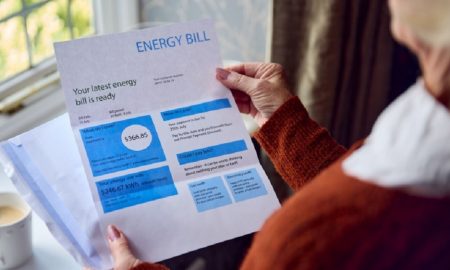How to Legally Stop a Debt Collector From Harassing You
Dealing with debt is stressful enough without being harassed by aggressive collectors. Harassment can make a difficult situation worse, causing anxiety and frustration. Fortunately, federal laws protect you, and there are effective steps to stop abusive practices while responsibly addressing debt. This article explains how to recognize harassment, assert your rights, document interactions, and take action to protect yourself.
Recognizing Harassment Under Federal Law
The Fair Debt Collection Practices Act (FDCPA) strictly regulates how debt collectors can interact with consumers. Harassment, as defined by the U.S. Consumer Financial Protection Bureau (CFPB), includes repetitive phone calls intended to annoy or abuse, using profane language, or issuing threats of harm. Collectors must also clearly identify themselves and cannot use false or deceptive practices. Knowing these protections is the first step to taking control of the situation.

Moose Photos | Pexels | Harassment includes repetitive phone calls intended to annoy or abuse, using profane language, or issuing threats of harm.
Common Harassment Behaviors
Debt collectors sometimes engage in behaviors that violate FDCPA regulations. Examples of harassment include lying about the amount owed, pretending to be an attorney, or threatening illegal actions. They may also make false claims about arresting you or taking actions they have no intention of pursuing. Recognizing these behaviors can help you identify when a collector has crossed legal boundaries.
Steps to Take If a Debt Collector Harasses You
If a debt collector is harassing you, take immediate action. Start by requesting, in writing, that they stop contacting you. The CFPB provides sample letters for this purpose. However, remember that stopping communication doesn’t eliminate the debt—it merely halts their direct contact. You remain responsible for resolving the debt through payment or other financial strategies.
Keep Thorough Records
Documentation is your best defense against harassment. Record every interaction, noting the conversation’s date, time, and nature. Save all forms of communication, including emails, texts, voicemails, and letters. If you speak to a collector by phone, ask for their consent to record the call. For in-person interactions, consider recording via video if local laws permit. Organized records will strengthen your case should legal action become necessary.
Know When to Report the Behavior
If the harassment persists, report the collector to federal and state authorities. The Federal Trade Commission (FTC), the CFPB, and your state’s attorney general office handle complaints about debt collection practices. Filing a report not only helps you but also alerts regulators to ongoing abuses within the industry.
Take Legal Action
You have the right to sue a debt collector if they violate the FDCPA. In court, your detailed records can serve as evidence. If successful, the collector may be required to pay damages, court costs, and fines. Legal action also sends a clear message that unlawful behavior will not be tolerated.
Stay Polite and Composed
Remaining calm and polite during interactions with debt collectors is crucial. Even when faced with aggressive tactics, maintaining professionalism reflects well on you if the matter escalates to legal or regulatory authorities. Politeness can also de-escalate tense situations, potentially reducing further conflict.
How to Prevent Debt Collector Harassment
Stopping harassment begins with proactive steps to protect yourself. Knowing your rights under the Fair Debt Collection Practices Act (FDCPA) is essential, as it outlines permissible and impermissible actions by debt collectors. Request a validation notice from the collector, which legally obligates them to prove the debt is legitimate.
Additionally, monitor your credit report regularly to spot inaccuracies or fraudulent collections. By staying informed and organized, you can prevent misunderstandings and address issues before they escalate.
More in Financial Planning
-
`
How Can You Leverage Higher Income Limits for Capital Gains Tax Benefits?
As tax laws evolve, understanding how to leverage higher income limits for the 0% capital gains bracket becomes essential for savvy...
November 7, 2024 -
`
Investor David Einhorn Thinks Peloton Can Be Worth Five Times More IF It Cuts Costs
David Einhorn, founder and president of Greenlight Capital, has a bold vision for Peloton. He believes the struggling fitness company could...
November 7, 2024 -
`
How Interactive Matter Maps Improve Legal Research and Planning
Interactive matter maps have transformed legal research and planning by simplifying how law firms manage complex matters. These tools help legal...
November 1, 2024 -
`
The Role of Global Mobility in Business Planning for 2025
In an era where the competition for top talent is fierce, the significance of global mobility in business planning cannot be...
November 1, 2024 -
`
Will AI Legal Advice Empower or Exclude Those in Need of Justice?
The rapid advancement of technology has introduced AI legal advice into the legal profession, creating both excitement and concern. Law firms,...
October 25, 2024 -
`
Trump vs. Harris – Who Does Hollywood Support?
As the race for the White House heats up, celebrity endorsements have become an influential force in shaping public opinion during...
October 22, 2024 -
`
How to Understand Your Energy Bill and Prevent Common Billing Errors
Understanding your energy bill is essential for managing household expenses and catching potential errors. Your energy bill offers a breakdown of...
October 18, 2024 -
`
Is Shawn Mendes’ Relationship With Camila Cabello Finally Clarified?
Recently, Shawn Mendes shared insights into his connection with Camila Cabello during an interview with Jay Shetty. Their relationship, which has...
October 15, 2024 -
`
China Stimulus Fuels Market Surge, But Can It Save the Ailing Economy?
The recent China stimulus measures have sparked renewed optimism in the markets, but doubts remain about whether these efforts will be...
October 10, 2024
















You must be logged in to post a comment Login